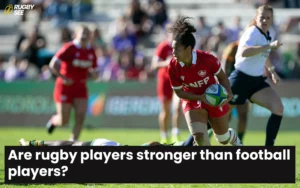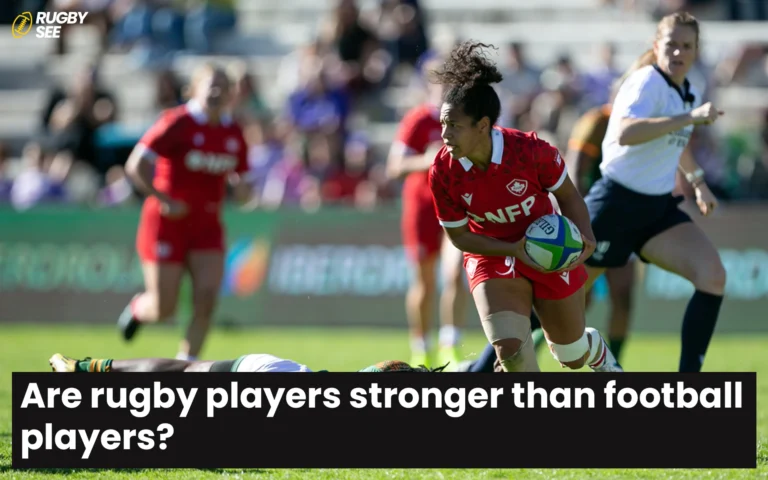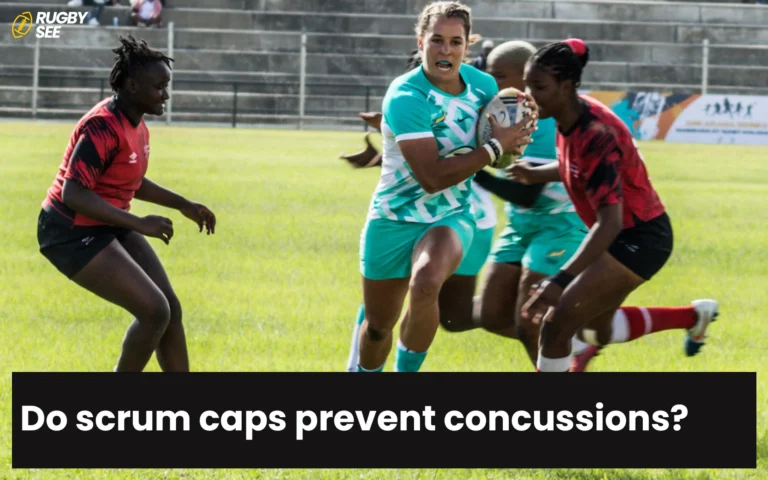Many people looking to lose weight often explore various sports and activities as a means to achieve their fitness goals. Rugby, known for its rigorous physical demands, offers a unique combination of cardiovascular exercise, strength training, and dynamic movement. This article explores whether playing rugby can be an effective way to lose weight and improve overall health.
1. The Physical Demands of Rugby
Rugby is a high-intensity sport that combines running, tackling, and strategic play, which can contribute significantly to calorie burning and weight loss.
a. High-Intensity Cardiovascular Workout Rugby players spend a significant portion of the game running, which varies from jogging to sprinting. This variation in speed and intensity helps in burning a high number of calories, similar to high-intensity interval training (HIIT).
b. Full-Body Engagement The sport requires the use of various muscle groups. From pushing in scrums to jumping for Will playing rugby help me lose weight ?line-outs, each activity helps increase muscle mass, which in turn boosts metabolism and if you want to know about wearing glasses in Rugby read can rugby players wear glasses?
2. Caloric Burn and Metabolic Rate
Understanding the relationship between caloric burn and weight loss is key to understanding rugby’s effectiveness in helping you lose weight.
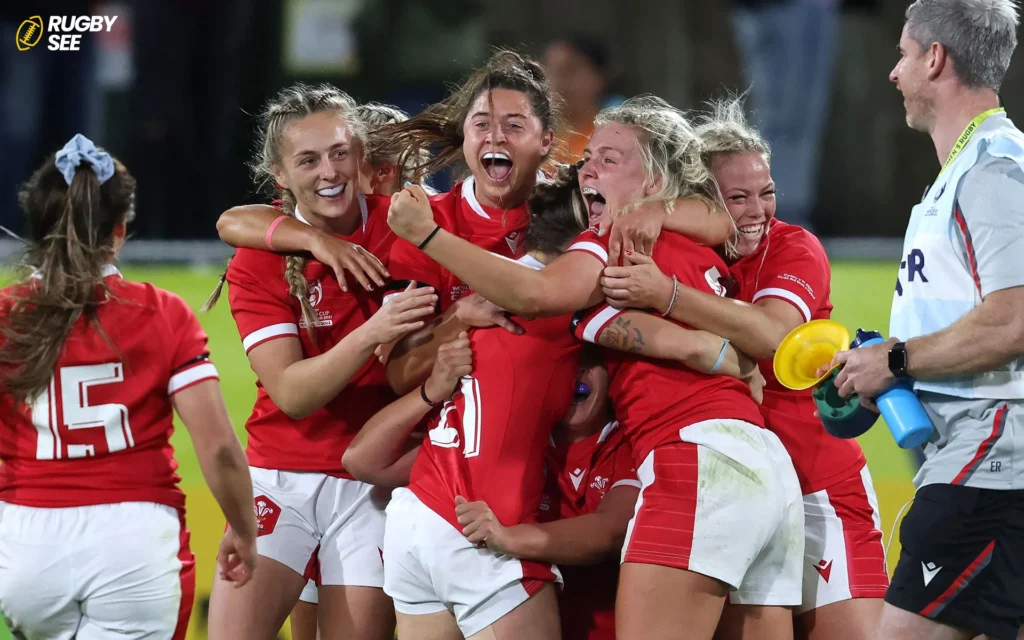
a. Caloric Expenditure Rugby can burn a significant amount of calories due to its intense nature. A typical adult can burn between 500 to 900 calories per hour depending on the intensity of play and personal physiology.
b. Increased Metabolic Rate Regular participation in rugby can lead to an increase in muscle mass. Muscle tissue burns more calories at rest compared to fat tissue, thus increasing the basal metabolic rate (BMR) and aiding in long-term weight management.
3. Rugby Training and Exercise Regimen
Rugby training sessions also contribute to weight loss, incorporating various types of fitness routines.
a. Strength and Conditioning Training for rugby often involves weightlifting and resistance exercises, which are crucial for building muscle and increasing overall body strength.
b. Agility and Speed Drills These drills not only improve performance on the field but also increase cardiovascular fitness, contributing further to caloric burn.
c. Endurance Training Regular endurance training, which includes prolonged periods of running or aerobic exercise, is essential for building stamina and promoting fat loss.
4. Dietary Considerations
To lose weight by playing rugby, attention must also be paid to dietary intake.
a. Nutrition for Performance and Recovery Eating a balanced diet rich in proteins, carbohydrates, and healthy fats is crucial for recovery and sustained energy levels during games and practices.
b. Caloric Deficit Weight loss occurs when you consume fewer calories than you burn. Rugby players must ensure they are not consuming more calories than they expend, even when increasing food intake to meet energy needs.
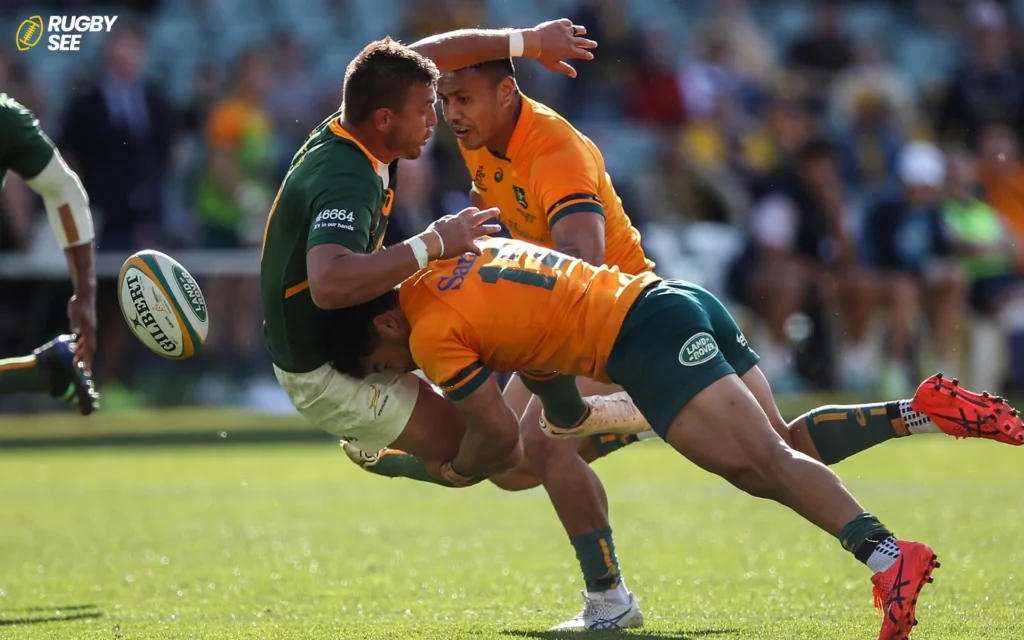
5. Lifestyle and Consistency
The benefits of rugby in promoting weight loss extend beyond the pitch. The lifestyle changes associated with regular participation can have significant impacts.
a. Regular Activity Consistent training and match play increase overall physical activity levels, crucial for sustained weight loss.
b. Healthy Habits Engaging in a team sport like rugby often encourages other healthy behaviors, such as better sleep patterns and reduced alcohol consumption.
6. Psychological Benefits
Playing rugby also offers psychological benefits that can indirectly contribute to weight loss.
a. Improved Mental Health Regular exercise, including rugby, increases endorphins and helps manage stress, which can reduce emotional eating.
b. Team Support The supportive environment of a rugby team can motivate individuals to stay committed to their fitness and weight loss goals.
7. Game Strategy and Player Roles
The strategic element of rugby also plays a significant role in how it can help players lose weight and maintain fitness.
a. Varied Player Roles Rugby features different player roles with varying physical demands. Forwards, who are involved in scrums and physical battles, might focus more on strength training, while backs require high speed and agility, emphasizing more cardiovascular fitness. This diversity ensures a well-rounded physical challenge.
b. Tactical Play The strategic nature of the game itself requires constant movement—running, dodging, tackling—which keeps the heart rate up and burns calories.

8. Off-Field Training and Activities
Rugby players often engage in activities beyond regular practices and games that contribute to weight loss and fitness.
a. Cross-Training Many rugby players participate in cross-training to improve their overall fitness and prevent injuries. Activities like swimming, cycling, and rowing are excellent for cardiovascular health and provide a break from the physical impact of rugby.
b. Fitness Challenges Teams might participate in fitness challenges or boot camps to boost general fitness, camaraderie, and competitive spirit, all of which can aid in weight loss and muscle gain.
9. Injury Prevention and Management
Maintaining fitness through injury prevention is crucial in any sport. In rugby, being proactive about injuries is key to consistent training and game play, which affects weight control.
a. Prehabilitation Exercises These exercises strengthen muscles around key joints, improve flexibility and mobility, and ultimately reduce the risk of injuries that could sideline players and disrupt their fitness routines.
b. Recovery Protocols Effective recovery protocols, including proper cool downs, stretching, and use of recovery tools like foam rollers, help maintain muscle health and ensure players can continue training without long breaks and if you want to know about playing Rugby in Soccer Field read can rugby be played on a soccer field?
10. The Role of Rest and Recovery
Understanding the balance between activity and rest is essential for effective weight loss and overall health.
a. Importance of Rest Days Rest days are critical in allowing the body to recover from the rigors of rugby. Proper rest prevents overtraining, supports muscle recovery, and ensures ongoing calorie burn through muscle repair.
b. Sleep Quality High-quality sleep enhances recovery, supports weight loss, and improves performance. Rugby players are encouraged to prioritize sleep to aid in recovery and maintain optimal health.
11. Community and Social Support
The role of the community and social support in maintaining a fitness routine cannot be understated, particularly in a team sport like rugby.
a. Social Encouragement Being part of a team provides a support system that motivates players to attend practices and games, pushing them to exert physically more than they might on their own.
b. Healthy Competition The competitive nature of rugby encourages players to continually improve their fitness levels, which is beneficial for weight loss and overall health.
Playing rugby can indeed be an effective way to lose weight, provided it is combined with a sensible diet and regular participation. The sport offers a high-intensity cardiovascular workout that burns a significant number of calories and improves overall physical fitness. Moreover, the strength and conditioning aspects of the sport help in building muscle mass, which enhances metabolic rate and aids in long-term weight management. For those looking to lose weight while enjoying a dynamic and engaging sport, rugby offers the perfect combination of physical exertion, team spirit, and fun.


